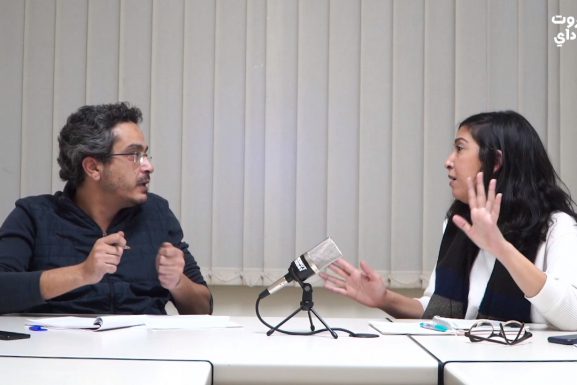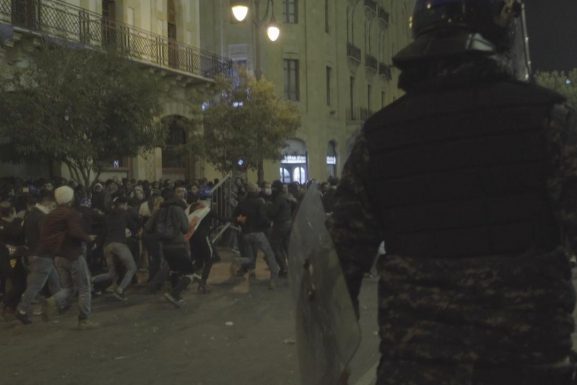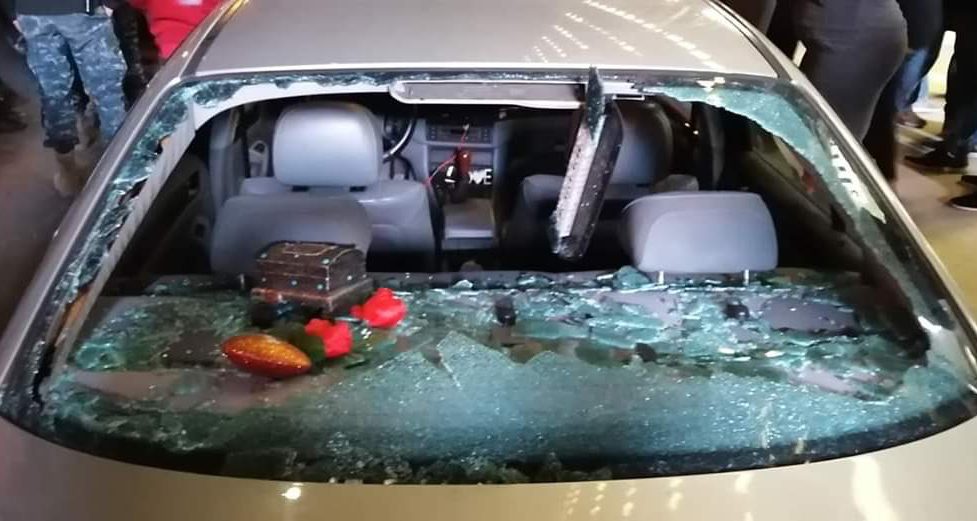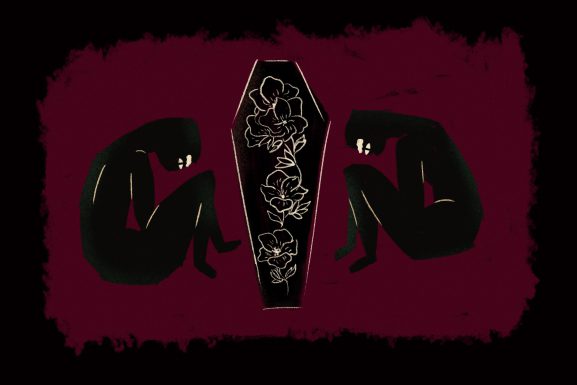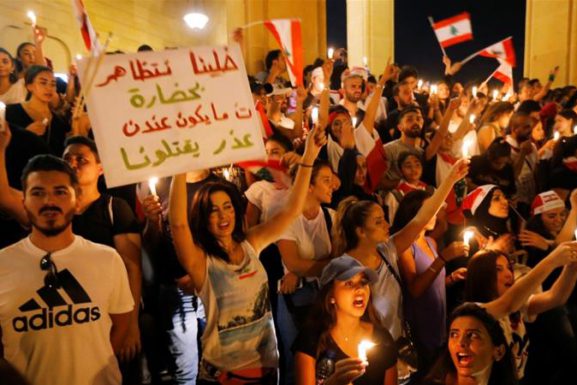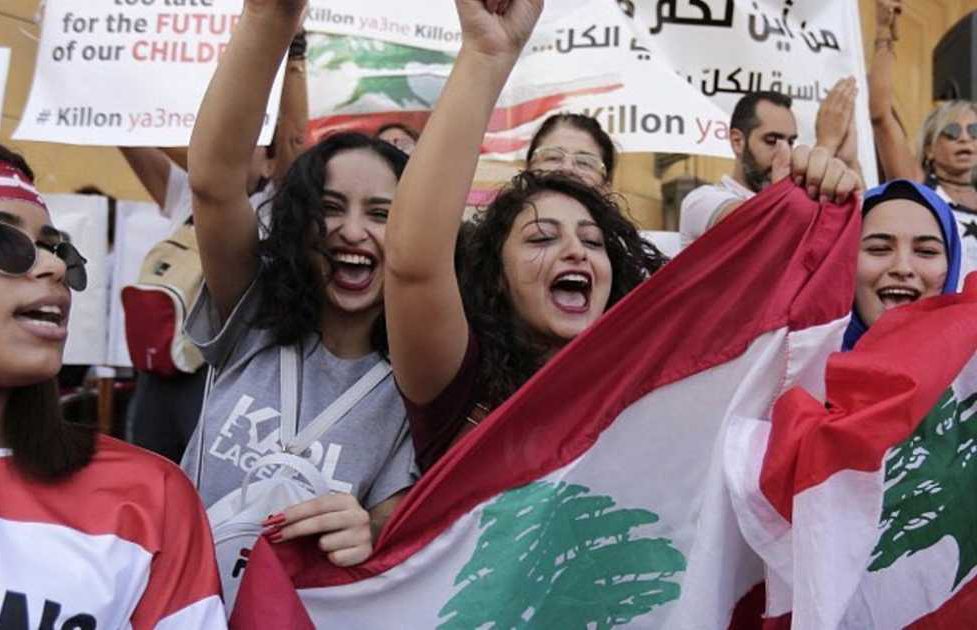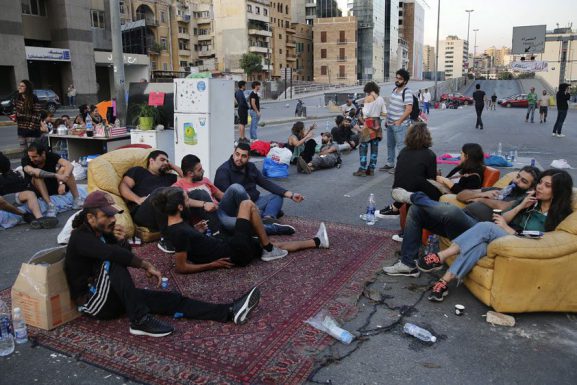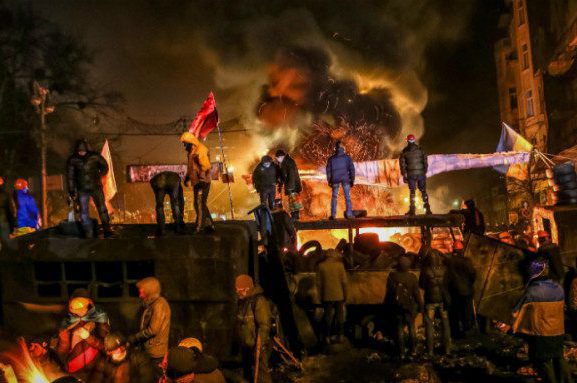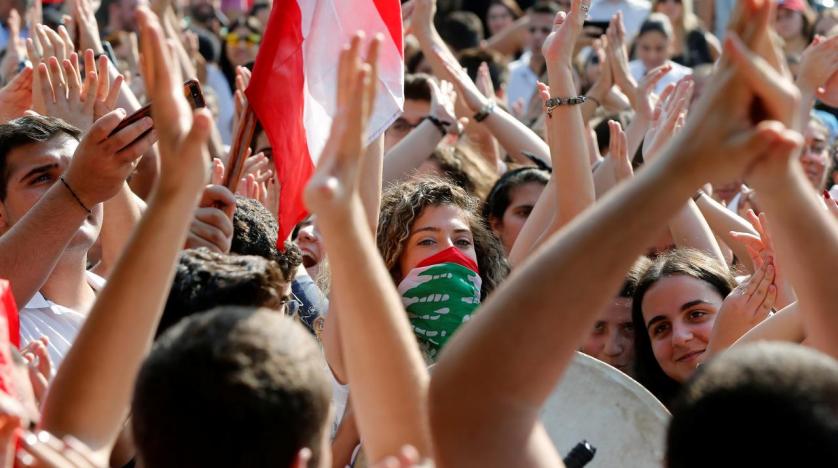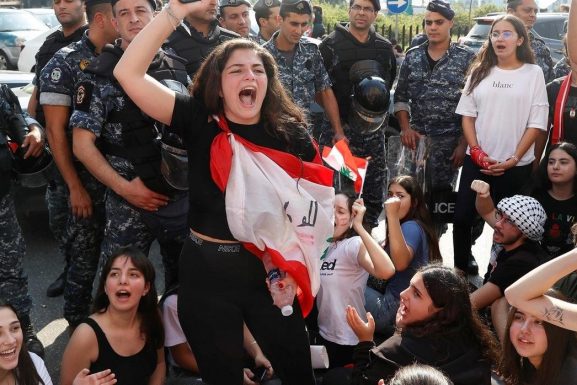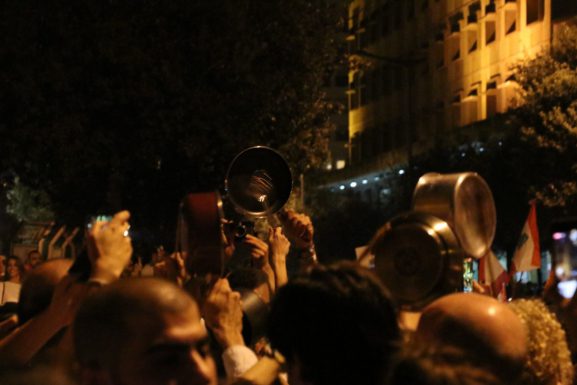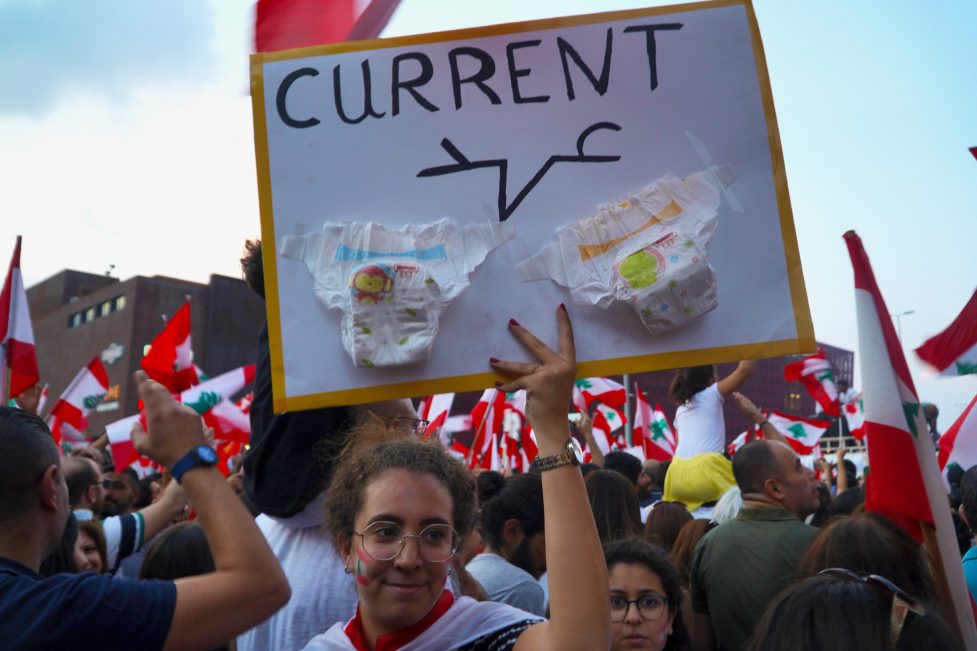For the fourth episode of Beirut Talks, lawyer, human rights researcher, activist, and co-founder of Beirut Madinati Nayla Geagea breaks...
BEIRUT: Lebanese President Michel Aoun on Monday postponed the parliamentary consultations to select a new prime minister following a weekend...
BEIRUT: Rights groups Wednesday condemned an overnight attack by security forces on a convoy of protesters near the home of Parliament Speaker Nabih Berri that left a number injured, including a journalist. The attack took place around midnight Tuesday as a large convoy of protesters drove between the homes of...
Through independent initiatives, Lebanese citizens have taken it upon themselves to provide the basic needs that many in the country...
Revolutions are hardly ever associated with non-violence, especially when they intend to overthrow an authoritarian system. The forces in power...
The women of the Lebanese protests are fighting the country’s patriarchal power structures, where their political voice has long been smothered.
From highways to proactivity, people in Lebanon have taken back their essential right to exist in open, free, and accessible public spaces.
While the overview of Winter On Fire is not to be wholly discredited, it does present the world with a whitewashed version of Ukraine's Maidan uprising.
Women have firmly asserted their presence within the Lebanese protests and the overall political scene.
The state has commodified and marginalized students for years.
Day 21: At the Women’s March in Beirut, protesters bang on pots and pans, drum on walls, and light candles....
Lebanese citizens are demanding change, but not everyone is ready for a secular state. A referendum could help create a unified national identity.


